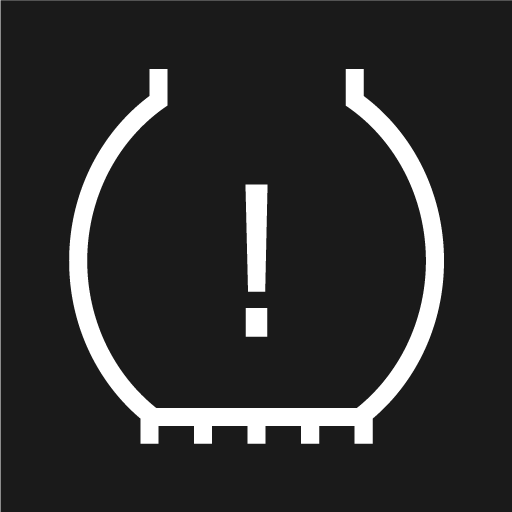Action when warned of low tire pressure
When the inflation pressure monitoring system1 detects low inflation pressure in a tire, immediate action is required.

If the system's indicator symbol illuminates and the message about low inflation pressure is displayed, check the tire pressure and inflate if necessary.
Switch off the ignition.
Check the inflation pressure on all four tires using a tire pressure gauge.
Inflate the tire to the correct inflation pressure; see the tire pressure placard on the driver's side B pillar for recommended pressures for factory-mounted tires.
After the inflation pressure has been adjusted, always save the new inflation pressure in the system via the center display.
Please be aware that the indicator symbol will not go out until the low tire pressure has been corrected and a storing procedure has been started for the new inflation pressure.
The vehicle may need to be driven for a few minutes at a speed above 35 km/h (22 mph) to activate the system.
Note
To help prevent incorrect inflation pressure, pressure should be checked when the tires are cold. The tires are considered to be cold when they have reached the same temperature as the ambient temperature (about 3 hours after the vehicle was last driven). After driving for a few kilometers, the tires will warm up and the pressure will increase.
Note
- After inflating a tire, always replace the valve cap to help prevent valve damage caused by gravel, dirt, etc.
- Use plastic valve caps only. Metal caps could corrode and become difficult to remove.
Warning
- Incorrect inflation pressure could lead to tire failure, which could cause the driver to lose control of the vehicle.
- The system cannot predict sudden tire damage.